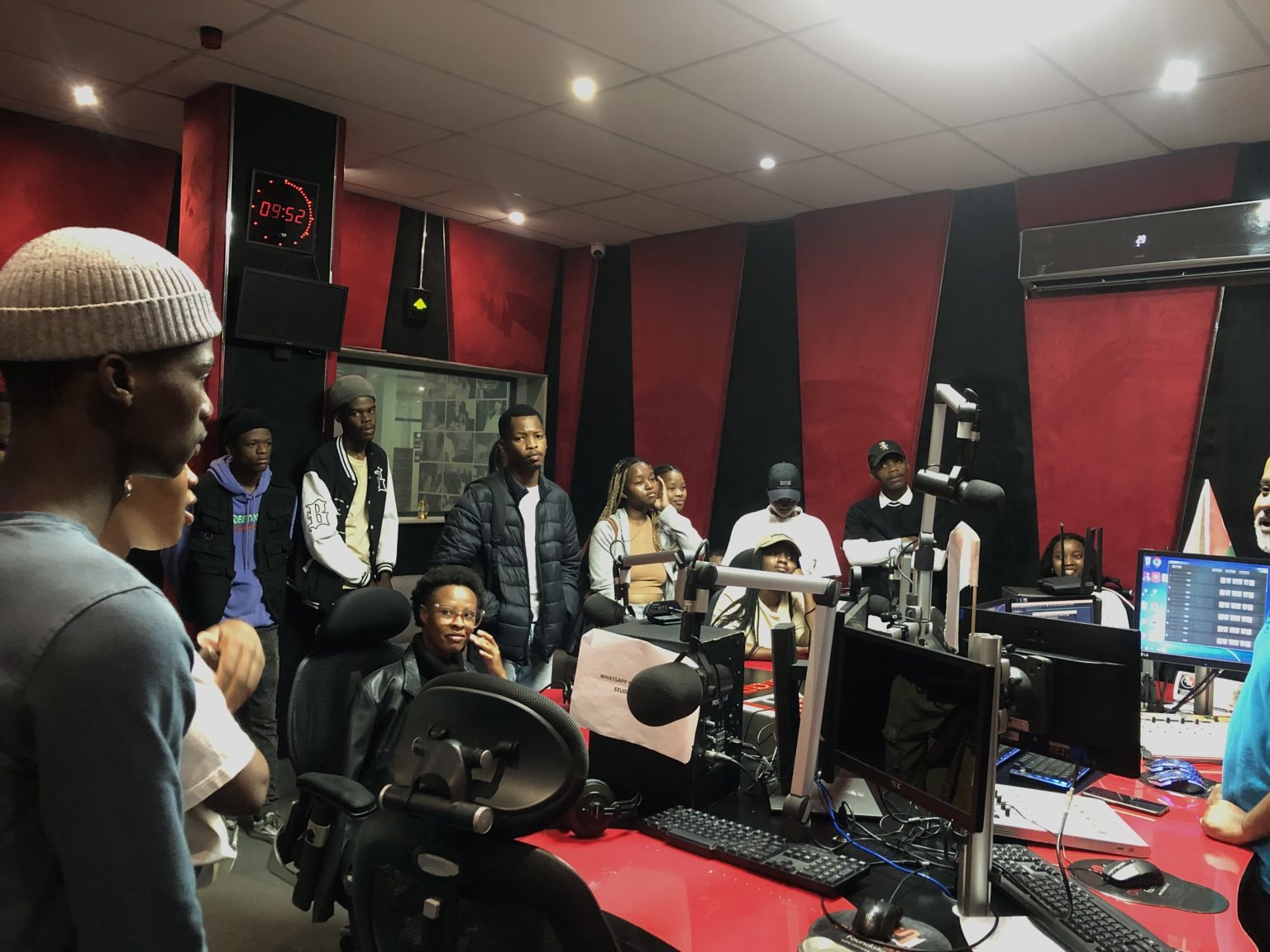By Sanele Khumalo and Mendy Mtshali
Durban University of Technology (DUT) radio journalism students got a chance to explore a real life radio studio when they visited two community radio stations, Alansaar Radio and Izwi Lomzansi this week.
“I have never been in a radio studio before, so I am so excited, and I am just hoping to gain insight more than anything. Insight on how the practical side of radio works since we have limited resources,” says third year student, Aphiwe Mgoqi.
“I am hoping to learn more of practical work as I am not familiar with operating radio machines, I am nervous because when I get into the industry it might be difficult for me to adapt since I am not well equipped with practicals as yet,” Lucia Gxigxa adds.
Community radio stations often make no or very little profit which makes it difficult to keep them going. Their duty is to serve the niche communities that they are in. This differs from commercial radio stations whose purpose is to make profits and as a result must always play the latest popular music.
Senior lecturer at DUT, Dr Theodora Adjin-Tettey says its important for students to leave the lecture hall and get real world learning and the trip to the two radio stations is to help the students begin that journey.
“What pushed me is the fact that in my teachings I have always believed in my students, apart from the theoretical knowledge that they gain which is very important and core to the practical work they do in class and all the assessments,” Adjin-Tettey explains.
Their hosts seemed as thrilled to have them over.
“I hope students gained enough information and saw that there is more that goes into radio and that they should not be afraid to go to community radio stations as they are a foundation before they get into commercial radio,” says Alansaar Radio Head of current affairs and news anchor, Thabile Duma.
Izwi LoMzansi news editor, Sifiso Sibisi, says it is important for journalism students to show interest in news events and developments, so it can be easier for them when they are in the field.
In the end, students feel that their expectations of how radio works in the real world has met their expectations.
Students shared their insights on their radio trip and what skills they observed and hope to master.
“Now that I have been in a radio station, I noticed the presenter was very composed and that’s a skill that comes with experience, and I would love to be in a studio a lot more so I can have the practical aspect since we do a lot of theory in school,” says student, Lwandile Hlekwayo.

